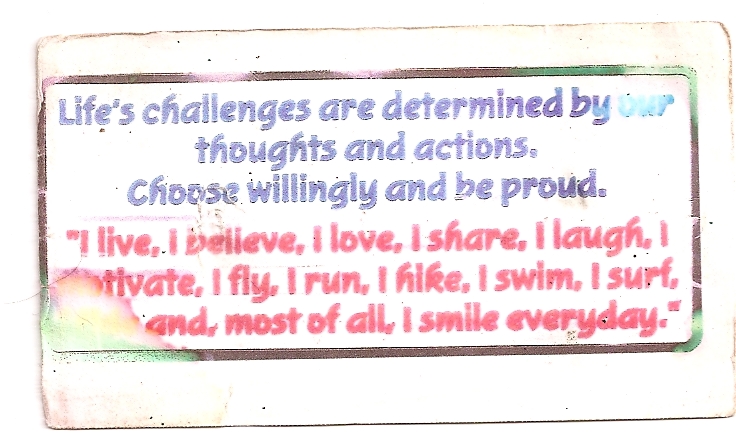Six weeks ago or so I wrote a post about an unredeemed, and somewhat magical, pawn ticket that I’ve kept in my wallet for the past sixteen years. You’ve seen those TV advertisements for the “credit card” mafia front called Capital One. “What’s in your wallet?” they ask. Well, I used to have a Capital One so-called “credit card”1 in there , but I canceled the account last year –I’m still paying down the balance– so I have nothing with their name on it in my wallet to remind me that I’m still their bonded serf. In addition to that Magic Pawnbroker ticket I have this my wallet:

Some of the words are water-blurred, so here’s a transcription:
“Life’s challenges are determined by our thoughts and actions. Choose willingly and be proud. ‘I live, I believe, I love, I share, I laugh, I motivate, I fly, I run, I hike, I swim, I surf, I ride, and, most of all, I smile every day’”.
It’s a reproduction of a card that was found in the effects of an extremely close friend of mine, a former professional athlete (snowboarding), who died, much too young, of ALS, nearly two years ago. He indeed lived up to this credo, and, as I said in a eulogy at a memorial service for him in a packed-to-overflowing(non fundie, non-evangelical) church in his adopted home town of Colorado Springs, “he was a happy man until the day he died.”



